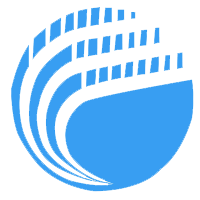Overview
BTTM at Nepal College of Travel and Tourism Management (NCTTM)
Bachelor in Travel and Tourism Management (BTTM) at Nepal College of Travel and Tourism Management (NCTTM) is a four-year, eight-semester undergraduate course under Tribhuvan University in Kathmandu.
You study tourism systems, travel operations, ticketing and reservations, destination planning, hospitality basics, marketing, accounting, and research methods.
NCTTM focus on Nepal’s tourism context and help you connect classroom learning to field tasks, internships, and entry-level responsibilities in agencies, hotels, airlines, and destination organizations.
Highlights
-
Affiliation: Tribhuvan University, Faculty of Management
-
Duration and structure: four years, eight semesters
-
Study focus: travel operations, tour design, ticketing and GDS basics, tourism marketing, service quality, research, and destination planning
-
Assessment: semester examinations, practical tasks, presentations, project work, and internship records
-
Campus resources: front-office PMS practice, training kitchen, demonstration restaurant and bar, housekeeping mock room, AV/multipurpose halls, computer lab, and library
-
Graduate aim: workplace-ready roles across tour operations, hospitality services, airline and airport support, and destination management
Curriculum Details
Semester one builds a foundation in tourism concepts, service operations, and communication. You learn how the visitor economy functions, how services are organized, and how documentation supports daily work. Short writing tasks and basic presentations help you explain ideas clearly.
Semester two moves into organizational behavior, financial accounting, and tourism in Nepal. You practice simple financial records and read case notes on domestic destinations. Travel service operations I introduces core procedures for agencies and tour desks.
Semester three deepens sector exposure. You study tourism marketing, cost and management accounting, adventure tourism, a foreign language option (often French or Chinese), and travel service operations II. You prepare short market briefs and itinerary outlines for selected routes, including costing sheets and supplier checklists.
Semester four covers electronic tourism, service quality, and research basics. You learn how booking systems, customer feedback, and online touchpoints shape decisions. A small methods block trains you to plan a questionnaire, collect responses, and summarize results in simple tables.
Semesters five and six introduce destination planning, policy awareness, and electives such as heritage tourism, airline and airport services, MICE events, or community-based tourism. Field tasks include site observations, supplier mapping, and short improvement memos written as if for an operations supervisor.
Semesters seven and eight complete the degree through an internship or project plus a capstone presentation. You compile evidence of tasks performed, reflect on service routines, and defend key findings before faculty. The aim is to show that you can handle planning, communication, and documentation at an entry-level professional standard.
Objectives
-
Build practical knowledge of travel and tourism operations in Nepal and the region.
-
Strengthen analytical thinking for product planning, service quality, and destination decisions.
-
Improve communication through reports, proposals, emails, and presentations used in the workplace.
-
Prepare graduates for early responsibility in agencies, hotels, airlines, airports, and destination bodies.
Scope
Students enter a diverse field that includes tour companies, travel desks in hotels, airline and airport services, ground handling, destination organizations, events and exhibitions, and consulting support for community projects. You gain exposure to both private and public actors, which helps you choose a path that matches your strengths and career plans.
Learning Outcomes
-
Explain the tourism supply chain from product idea to on-ground service and guest experience.
-
Prepare itineraries, quotations, and basic contracts using standard formats and supplier terms.
-
Operate ticketing and reservation routines at a foundational level and document bookings accurately.
-
Apply service standards in front office, housekeeping basics, and food service when internships require it.
-
Collect and summarize data for simple decisions using questionnaires, checklists, and quick analysis.
-
Present findings in short decks and write clear memos that supervisors can act upon.
Skill Development Modules
-
Operations and service: travel desk routines, tour costing, rooming lists, airport meet-and-greet, and complaint handling.
-
Ticketing and systems: GDS and e-ticketing fundamentals as introduced by the curriculum; record keeping for amendments and refunds.
-
Marketing and sales support: destination messaging, channel choices, rate negotiations, and simple content briefs.
-
Accounting and documentation: costing sheets, basic ledgers, voucher control, and reconciliation for small assignments.
-
Research and analytics: problem statements, sampling basics, descriptive statistics, and visual summaries for class presentations.
-
Sustainability and policy awareness: visitor flow, heritage concerns, protected areas, and community engagement steps relevant to Nepal.
Teaching Methodology
Teaching combines lectures, guided readings, case analysis, guest talks, and field exposure. NCTTM uses examples from trekking routes, heritage corridors, protected sites, hotels in Kathmandu, and regional hubs. Practical sessions run in the PMS/front-office area, service labs, and presentation halls.
A typical week balances three parts. You attend classes that set the ideas. You complete labs or site tasks that make those ideas concrete. You share quick reflections or short reports that train you to communicate findings. Assessment blends written tests, practical checks, presentations, and internship or project documentation.
Admission Requirements
Tribhuvan University sets minimum eligibility for BTTM. Applicants need to complete 10+2 or equivalent in any stream meeting the university’s grade/division rule and must pass the CMAT entrance for the intake year. NCTTM conducts counseling, document verification, and selection steps before seat confirmation. You should review the current notice each cycle.
Application documents
-
Application form and recent photographs
-
Academic transcripts and certificates (SEE/SLC onward)
-
Copy of citizenship
-
CV and a short motivation note if requested
Selection flow at the college
-
Counseling and application submission
-
Entrance screening as per TU/Faculty of Management notice
-
Group discussion and individual interview
-
Seat confirmation and fee completion
Career Opportunities
You can begin as a management trainee or officer in tour operations, sales support, reservations, or guest relations. Hotels need graduates for travel desks and front-office support. Airlines and airport services engage graduates for check-in, boarding, and customer assistance. Destination bodies and event organizers recruit for coordination roles. Teaching and training become options later if you add qualifications and experience.
A simple path
You join a Kathmandu tour operator after internship. Month one focuses on quotations, supplier calls, and guest emails. Month three adds a short field assignment and a product review memo. By the end of year one you handle a set of domestic itineraries and seasonal contracting for a few routes.
Scholarships and Financial Aid
NCTTM publishes scholarship and fee notices for each intake. Bank financing may be available through partner lenders subject to their rules. You should request a semester-wise fee sheet, clarify refundable deposits, and ask about any merit or need-based categories that apply to BTTM seats. Early document preparation helps you meet scholarship or loan timelines without stress.
Why Choose This Course?
-
Tribhuvan University affiliation that signals program recognition across Nepal.
-
Link between classroom study and service practice through PMS, service labs, and presentation spaces.
-
Semester plan that includes projects and internships so you graduate with documented experience.
-
Kathmandu location close to hotels, travel businesses, airlines, and event venues, which supports networking during study.
-
Guidance from faculty with sector experience and regular guest sessions from industry practitioners.
Conclusion
BTTM at NCTTM offers an undergraduate route that joins travel operations, hospitality basics, destination planning, and research skills. You learn how agencies, hotels, and airlines function and how to support day-to-day tasks with clear documentation. NCTTM aims to help you build a credible early-career profile through classes, labs, field tasks, and an internship or project. Your next steps are direct: confirm current eligibility and entrance dates, prepare documents, and plan your study calendar so you can start on time and build steady progress across eight semesters.






















